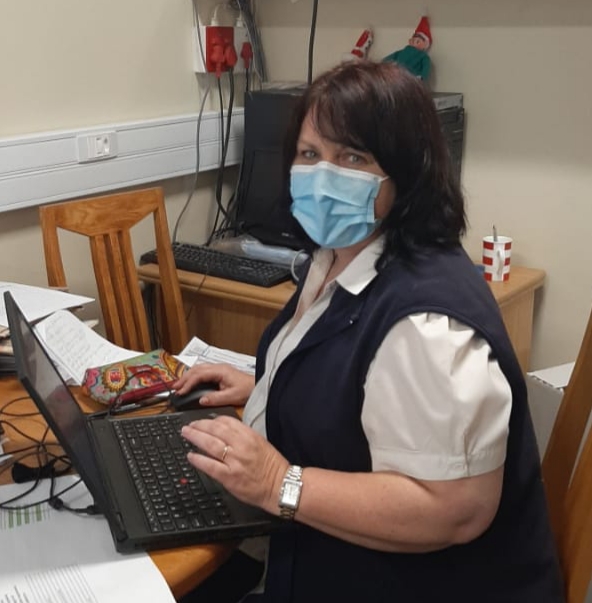
News
Don’t be complacent, Covid-19 is dangerous
For Quality Assurance Manager in the Overberg, Sister (Sr) Duedonne Le Grange having COVID-19 had an enormous impact on her life, emotionally and spiritually. From the moment she became aware of her COVID-19 status, she was concerned about the effect the virus would have on her body and the people around her.
As a Quality Assurance Manager Sr Le Grange handles infection prevention control in Health Facilities to ensure that patients and health care workers have minimal exposure contagious illnesses. She advises from her own experience that one should not become complacent in areas that we feel safe. “I think being very focused on infection prevention, I am constantly busy evaluating my risk while conducting my work. I always work very safely and do all the right things. I realised that I did let my guard down in my office, a “safe place” compared to all the COVID-19 wards and testing sites I visited,” says Sr Le Grange.
While we are aware of common symptoms of COVID-19, we are not sure of the severity the symptoms might have on us and others who contract the virus. One thing that is clear is that symptoms are more severe and dangerous for the elderly and those with underlying health conditions and we need to avoid putting them at risk. “I had to cope with the fear of not only what COVID-19 was going to do with my body, but also who I might have infected, such as my colleagues and loved ones.”
We need to ensure that we adhere to all the protocols put in place to protect ourselves and others from COVID-19 at least until a vaccine becomes available to everybody. We should remain aware of our surroundings at all times and not become complacent in the places we feel safe, which is normally between family and friends.
“I do believe that vaccines are one of the biggest achievements of public health. They have helped to add numerous years to human life expectancy and are one of the best tools for preventing disease and death. Immunisations with childhood vaccines prevent 2 to 3 million deaths every year. They are also one of the most thoroughly tested and safest products in history,” says Sr Le Grange.
She says that she believes the COVID-19 vaccine will also help to save countless numbers of lives. She advises that you make an informed decision about the vaccine should you have any doubts about its benefits. “Read up on the vaccine and make an informed decision about being vaccinated for yourself. In my opinion, the risk of not being vaccinated is far greater than the risk of not getting it. Of the tens of thousands of people who have already been vaccinated, some have reported short-term symptoms and a few have reported minor reactions. Compare that to the virus itself, which has infected more than 90 million people globally and killed approximately 1.9 million people. The overwhelming benefits of vaccines to individuals and society significantly outweigh the risks for adverse reactions,” explains Sr Le Grange.
“I will be the first person to advise you to not live in fear. But to be wise. Try to avoid going to shops in peak hours. Order online if you can. Enjoy the outdoors, watch the sunset, run through the forest or climb a mountain. There are a number of things you can do that won’t expose you to crowds of people but will refresh your soul. Protect your eyes, nose and mouth (don’t kiss and hug the aunty or uncle you have not seen in a while) and perform regular hand hygiene. Wear your mask and stay 1,5 m from other people. Do everything you can to protect you and your loved ones.”
Roché Butler
Communications Officer
Western Cape Government Health
Tel: 084 216 5796
Email: Roche.Butler@westerncape.gov.za
Website: www.westerncape.gov.za


